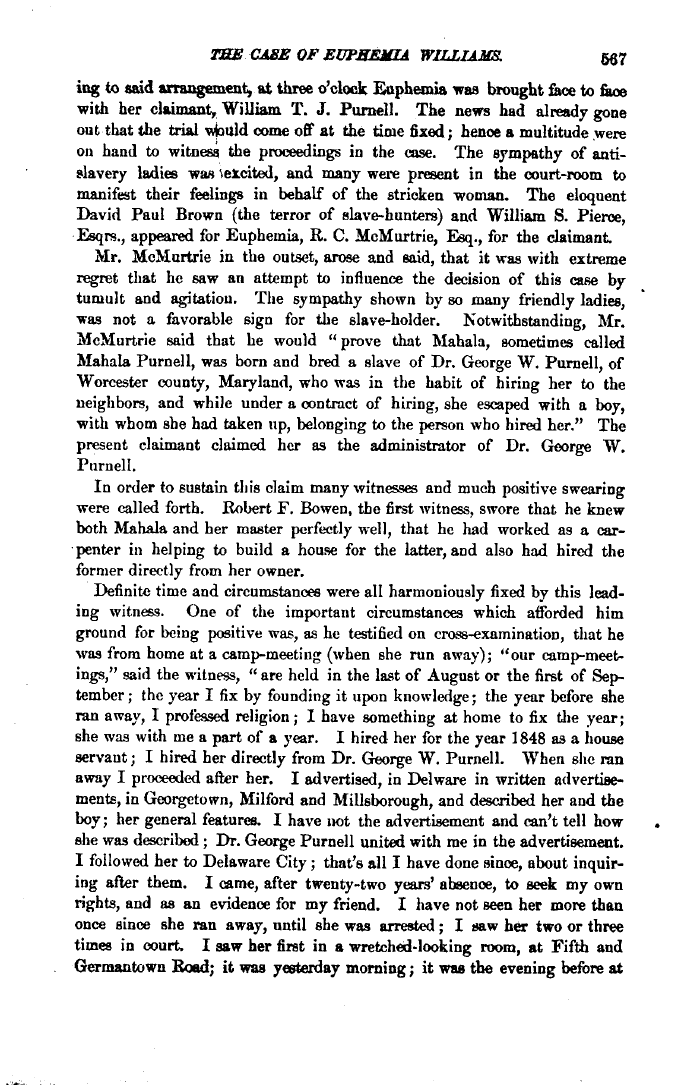 |
||||
 |
||||
| XSe CASE OF EUPSEIOA WILLIAMS. 537 ing to said arrangement, at three o'clock Eaphemia was brought feee to face with her claimant, William T. J. Purnell. The news had already gone out that the trial wioUld come off at the time fixed; henoe a multitude were on hand to witness the proceedings in the case. The sympathy of anti-slavery ladies was \elcited, and many were present in the court-room to manifest their feelings in behalf of the stricken woman. The eloquent David Paul Brown (the terror of slave-hunters) and William S. Pierce, Esqrs., appeared for Euphemia, R. C. McMurtrie, Esq., for the claimant. Mr. McMartrie in the outset, arose and said, that it was with extreme regret that he saw an attempt to influence the decision of this case by tumult and agitation. The sympathy shown by so many friendly ladies, •was not a favorable sign for the slave-bolder. Notwithstanding, Mr. McMurtrie said that he would "prove that Mahala, sometimes called Mahala Purnell, was born and bred a slave of Dr. George W. Purnell, of Worcester county, Maryland, who was in the habit of hiring her to the neighbors, and while under a contract of hiring, she escaped with a boy, •with whom she had taken up, belonging to the person who hired her." The present claimant claimed her as the administrator of Dr. George W. Purnell. In order to sustain tliis claim many witnesses and much positive swearing were called forth. Robert F. Bowen, the first witness, swore that he knew both Mahala and her master perfectly well, that he had worked as a car- •penter in helping to build a house for the latter, and also had hired the former directly from her owner. Definite time and circumstances were all harmoniously fixed by this leading witness. One of the important circumstances which afforded him ground for being positive was, as he testified on cross-examination, that he was from home at a camp-meeting (when she run away); "our camp-meetings," said the witness, " are held in the last of August or the first of September; the year I fix by founding it upon knowledge; the year before she ran away, I professed religion; I have something at home to fix the year; she was with me a part of a year. I hired her for the year 1848 as a house servant; I hired her directly from Dr. George W. Purnell. When she ran away I proceeded after her. I advertised, in Delware in written advertisements, in Georgetown, Milford and Millsborough, and described her and the boy; her general features. I have not the advertisement and can't tell how she was described; Dr. George Purnell united with me in the advertisement. I followed her to Delaware City; that's all I have done since, about inquiring after them. I came, after twenty-two years' absence, to seek my own rights, and as an evidence for my friend. I have not Been her more than once since she ran away, until she was arrested; I saw her two or three times in court. I saw her first in a wretched-looking room, at Fifth and Germantown Boad; it was yesterday morning; it was the evening before at |